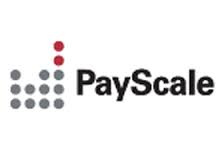 Many college students aren’t looking for jobs with the highest pay. Instead, they dream of applying their talents, making an impact, and leaving a legacy. In other words, they’re seeking meaning in their work.
Many college students aren’t looking for jobs with the highest pay. Instead, they dream of applying their talents, making an impact, and leaving a legacy. In other words, they’re seeking meaning in their work.
Some might tell you if you want meaning in your life, you should go see a priest. A new survey (July 22) from PayScale tells you that if you want meaning in your career, you should go be a priest. Or if you want meaning and money, well, you may belong in the doctor’s office – behind a surgeon’s mask. If, however, you’re interested in a career in business, the survey says . . . aim high.
The massive survey by PayScale, a leading data warehousing firm that specializes in employee compensation, found that when it comes to having a meaningful career, religious vocations top the list. Ninety-eight per cent of clergy members found meaning in their jobs. At the same time, parking lot attendants reported the lowest rate of meaning at 5%. And over a quarter of fast food workers believed their efforts made the world a worse place.
The results are based on data supplied by over 2.7 million people who completed PayScale’s survey between June 2013 and June 2015. To rank highly on meaning, respondents answered either “Very Much So” or “Yes” to the question, “Does your work make the world a better place?”
RELIGIOUS VOCATIONS PROVIDE MOST MEANING
People who work in religious vocations tended to score highest here. Aside from clergy, directors of religious activities and education also derived deep meaning from their work – at a 96% clip (tied for second among over 800 jobs). Both groups also reported a high degree of job satisfaction, defined by respondents answering “Extremely Satisfied” or “Fairly Satisfied” to the question, “How satisfied are you in your job?”Here, 90% of clergy were highly satisfied, among the highest totals in the survey. And religious educators came in at 84% – well above average. Even more, clergy and religious educators maintained these high levels of meaning and satisfaction despite paltry median pay ($46,600 and $37,600, respectively).
Looking for another career with high meaning? Try education. Finishing second were postsecondary English language and literature teachers at 96% (which is undercut, to an extent, by a lukewarm 74% satisfaction rate). Similarly, elementary and secondary school administrators finished fifth in meaning at 95%, while also yielding one of the highest satisfaction scores (88%). And that doesn’t include pay ($76,700), which is well above the average.
According to PayScale, education professionals report one of the highest discrepancies between job meaning and job satisfaction. For example, 80% of K-12 teachers who participated in PayScale’s survey considered their work meaningful. However, this same sample earned, on average, less than $45,000 annually. At the same time, as PayScale reports, educators face high certification requirements and debt loads to enter the profession. Those factors, coupled with a rising cost of living, take a toll on teachers – some of whom ultimately leave the profession to pursue higher wages.
HEALTHCARE PROFESSIONALS HAPPIEST REGARDLESS OF PAY
Medical professionals also scored high on PayScale’s indices of meaning and satisfaction. For example, 96% of surgeons regarded their work to be highly meaningful – and 83% drew high satisfaction from it. In fact, surgeons produced the best combination of meaning (96%) and median salary ($304,000). So what makes medicine so meaningful? In an interview with PayScale, Belinda Fu, an MD and professor in Washington, shares that she finds meaning in becoming a key part of her patients’ lives. “It is an incredible, humbling privilege to play a part in the lives of my patients, to witness their most private struggles, events, and personal stories, and to help them as best as I can.”
As a group, health care practitioners were the happiest professionals, with high marks in all three categories: Median pay ($83,500), job meaning (82%), and job satisfaction (74%). In fact, health care contains 7 of the 13 most meaningful roles. Computer and mathematics professionals also performed well collectively on annual income ($74,300) and job satisfaction (70%), but ranked in the lower half for job meaning (46%). Despite raking in a modest $40,600 median income, community and social services professionals find high meaning (84%) and job satisfaction (74%) at work. The same is true of health care support professionals ($33,800 median pay against 78% meaning and 72% satisfaction). Despite earning 40% of what health care practitioners make, the support professionals have nearly the same levels of meaning and satisfaction – reinforcing that money isn’t everything in a job.
Overall, 55% of PayScale’s sample considered their work meaningful. And you’ll find a few surprises at the bottom. For example, just 20% of gaming supervisors consider their work meaningful. And it’s not much better among pre-press technicians (25%), title examiners (25%) and fabric and apparel pattern makers (25%). What’s behind this, you ask? For starters, all earn less than the Census Bureau’s median household income ($53,046). What’s more, all except gaming supervisors are being squeezed out by automation. Surprisingly, you’ll find fashion designers – often portrayed as glamorous work by the media – ranking in the bottom 10, with just 26% achieving fulfillment in their work.
MAJORITY OF ACCOUNTANTS DON’T FIND MEANING IN WORK
PayScale also asked respondents whether their jobs made the world a better or worse place to live. While most believed their work was a help, several professions reflected higher demoralization and disillusionment. According to the data, 25% of fast food workers – buffeted by low pay, a fast pace, higher customer expectations, and attacks from nutrition advocates – believe their work makes life worse. They were followed by warehouse pickers at 21%.
In fact, you could find a correlation between professions with a perceived low meaning and social betterment. For example, casino gaming supervisors rank second from the bottom on meaning and third from the bottom (20%) on making the world better. Similarly, fashion-related jobs (merchandise planning managers and commercial photographers for value and fashion designers) also appeared in the bottom 10 for both categories.
When it comes to business and finance, the sample was relatively tepid in its responses. As a group, just 47% of business professionals enjoyed heavy meaning from their job. At the same time, 70% were satisfied with their work. On average, business professionals earned a median $54,600 per year. Conversely, sales professionals scored low across the board, with 42% meaning and 63% job satisfaction . . . scores only eclipsed by anemic $40,800 median annual pay.
Not surprisingly, chief executives – who earned $126,000 on average, had the highest rates when it comes to meaning (74%) and satisfaction (88%) in business-related jobs. Accountants and advertising sales reps had the lowest percentages for meaning (38%), while interviewers, at 61%, were among the least satisfied business professionals.
DON’T MISS: WILL GRADS SEE A HIGHER RETURN ON THEIR DEGREE
Go to next two pages for median pay and satisfaction rates for the most and least meaningful jobs, as well as business-related jobs.














Questions about this article? Email us or leave a comment below.